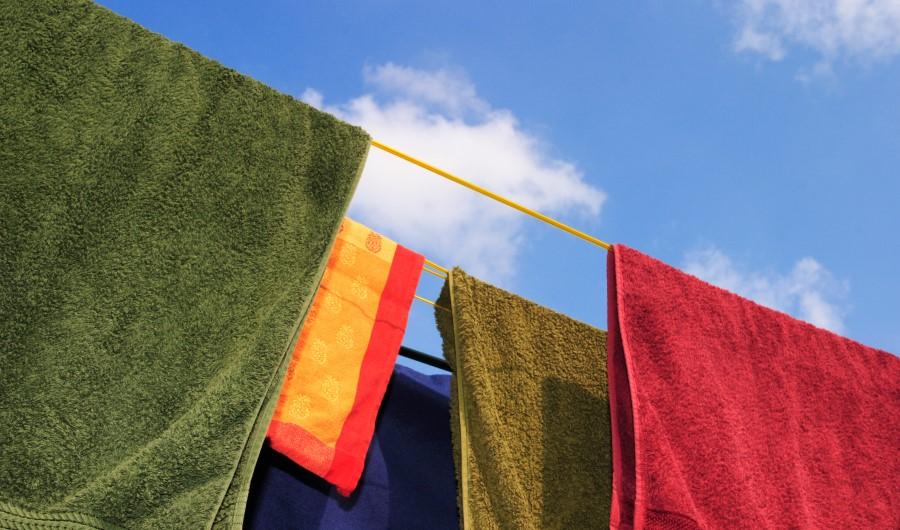Drying your laundry outside in the sunshine feels wholesome, doesn't it? It's a simple thing you can do to save energy (those clothes dryers really suck up the kilowatt hours) and sun-dried fabric just smells good. But there are some items of laundry for which air drying does no favors, and one of them is the bath towel.
Why is it that a towel dried outside on the line comes into the house as rigid and abrasive as a piece of beef jerky? The question has stumped scientists for some time, but a research team from Hokkaido University and the Kao Corporation in Japan thinks they might have cracked the air drying code — and in the process, they might have learned something important about water.
When it comes right down to it, most fabrics (with the exception of silk and wool) that aren't made out of plastic are made out of plants. Cotton is made from the fluffy seed casing of a small shrub, while rayon, modal, viscose, acetate, bamboo fabric and the like are made out of wood pulp. Plants contain a lot of cellulose, an organic compound that helps keep plant cell walls stiff. Cellulose is great at absorbing water, which is why we make towels out of cotton instead of polyester. Water molecules cling to cellulose and climb along it through a process called capillary action — cellulose can even defy gravity in order to pull the water along its surface.

Because water is a polar molecule, meaning one side of it holds a more positive charge and the other end a more negative charge, water is easily seduced by electrical charge. In the study published in the February 2020 issue of The Journal of Physical Chemistry C, the research team found that individual, cross-linked fibers on air drying fabric like a cotton towel actually have "bound water," or water that behaves in unique ways as it adheres to the surface of something because it likes the charge of that thing, which gets sandwiched between the fibers, causing them to stick together.
The experiments conducted by the research team found that bound water on the surface of the cotton fibers created a "capillary adhesion" of the tiny fibers to each other, creating stiffness in the fabric when these little strings glued together.
"The bound water itself manifested a unique hydrogen bonding state different from that of ordinary water," said Ken-ichiro Murata of Hokkaido University, in a press release.
Takako Igarashi of Kao Corporation added, "It has been thought that fabric softeners reduce friction between cotton fibers. However, our results showing the involvement of bound water in the hardening of cotton provide new insight into how fabric softeners work and can help us develop better agents, formulations and systems."
Now That's InterestingA clothes dryer uses twice as much electricity as a new refrigerator.